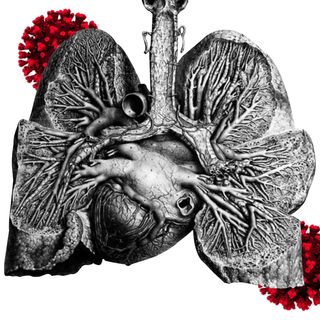Pathological lying is a compulsive behaviour in which people constantly lie, often seemingly for no other reason than to not tell the truth. This is precisely why we find it hard to accurately identify pathological liars, and also why we tend to often overuse, and misuse, the term to denounce a person’s lying. The blurred lines around compulsive or pathological lying are why the Internet is littered with how-tos for identifying pathological liars, a feat that the field of psychology has also found difficult to accomplish. But more than being able to identify a pathologic liar, it’s important we understand what makes lying pathological, and why pathological liars lie so often.
We know that pathological liars are different from people who lie every so often in their motivations — the former’s lies aren’t overt, agenda- or outcome-based. Pathological liars’ motivations to lie are more innate — as clinical psychologist Dr. Patapia Tzotzoli tells Refinery29, “The behavior seems to be the result of more internalized motivations such as to enhance self-esteem, an act of defense or narcissistic gratification.” It’s why pathological lying is believed to stem out of personality disorders and other mental health issues, or from having suffered emotional trauma early in life — as a symptom of a larger problem, rather than simply an annoying, suspect character trait.
Pathological liars also “demonstrate an impaired ability to distinguish between fiction and reality and it is often observed that the lie eventually wins power over the pathological liar and he loses mastery of his own lies,” Dr. Tzotzoli adds. This blurring of the truth, not just outwardly, but also in the person’s own mind, is what makes identifying, or trusting someone who pathologically lies impossible. In their world, the truth is a constantly changing, evolving concept, with their memories constantly reforming to change their past realities.
Related on The Swaddle:
Lack of Eye Contact May Not Be a Sign of Lying
Another characteristic of pathological liars is impulsivity, psychologist Linda Blair tells Business Insider. “If you’re an impulsive person, it’s really hard to break the habit, because you have this terrible feeling inside you that you have to sort things out right now … That doesn’t mean you necessarily lie, but it’s a little harder for you to stop from lying, more than someone who’s more reflective.” This further ingrains lying as a habit, Blair adds.
So, do pathological liars even know they’re lying? The subject is hotly contested amidst mental health experts. “Integral to the debate is the confusion emanating from questions about a pathological liar’s ability to think logically,” psychiatrist Dr. Charles Dike writes in Psychiatric Times, adding this shows that pathological lying could be a sort of escapism to suppress stress responses. In the same vein, Dr. Dike adds that pathological liars may be able to admit to their lies if prodded consistently but are on average teetering on the edge between reality and fiction in their own minds.
In looking at pathologic lying from the liar’s point of view, it becomes apparent that society’s use of the term pathological liar is not only misused but can also be dangerous. In pigeonholing pathological liars into the objectively, ethically unforgivable category of liars, we fail to dig deeper into why their lying is compulsive, and what it could be stemming from.
At the end of the day, it is difficult to identify, or even trust, pathological liars, but it’s not necessary to stigmatize them or assign unfathomably sinister motives to their actions. At its best, pathological lying is a coping mechanism that needs care and attention, and at its worst, it’s a dangerous habit that can destroy a person’s relationships. Either way, the most detriment pathological lying does is to the liars themselves — the more complicated their compulsive lies get, the more distress and anxiety they feel in trying to keep up the facade. To break this cycle, as with any unhealthy habit, experts suggest it’s best to seek professional help.




